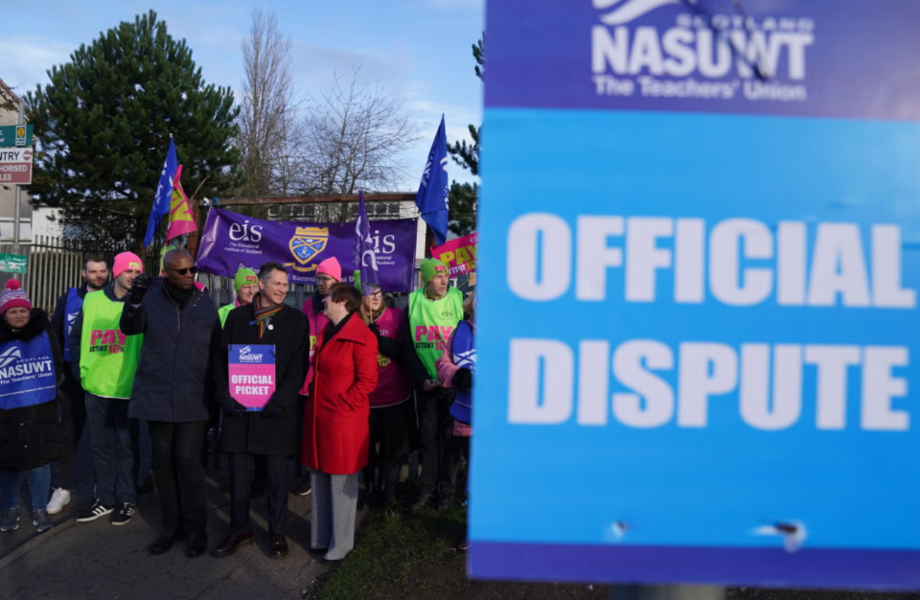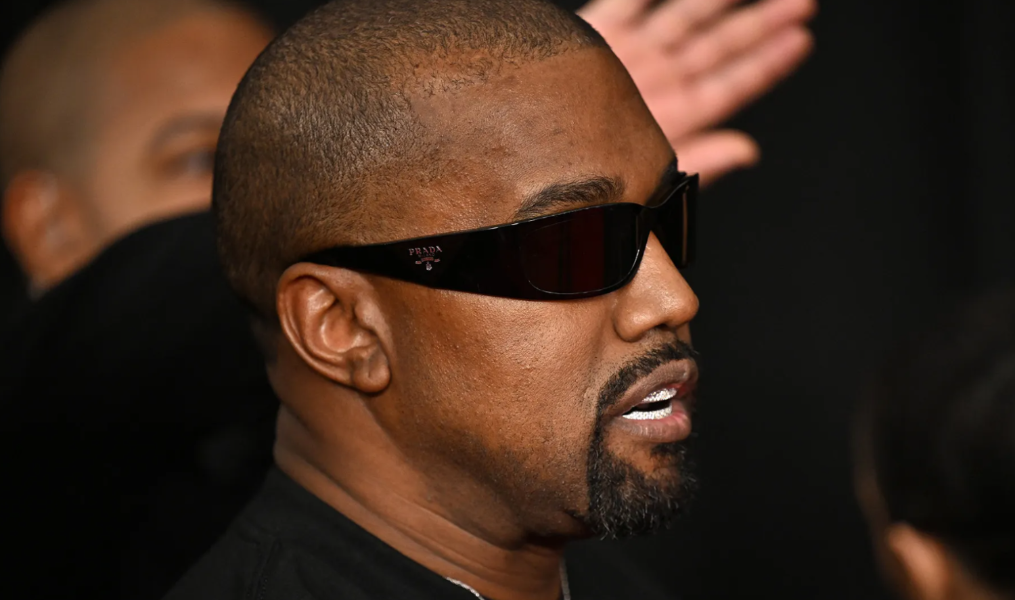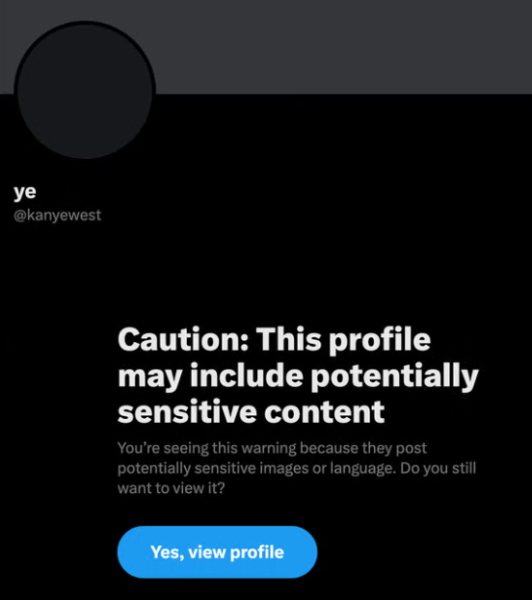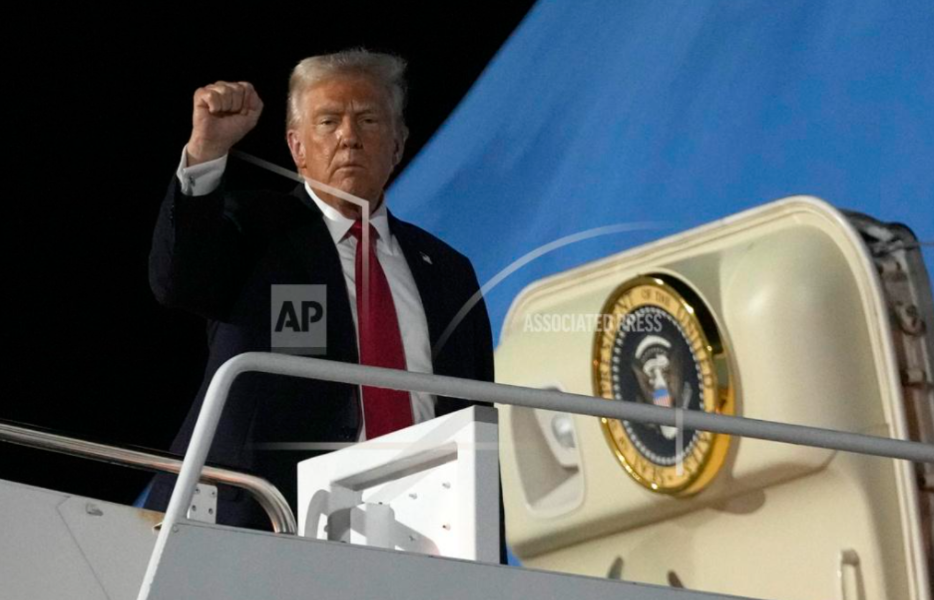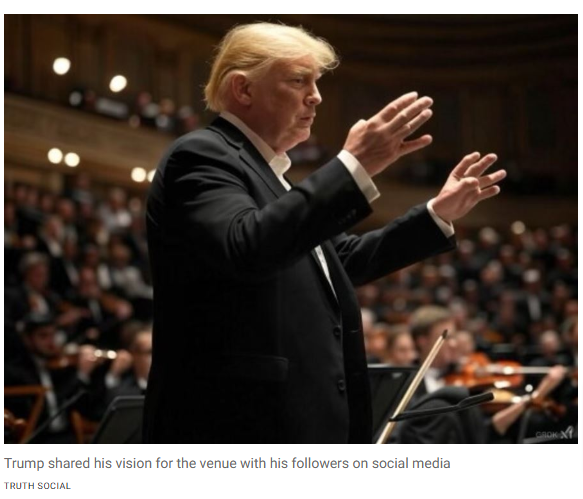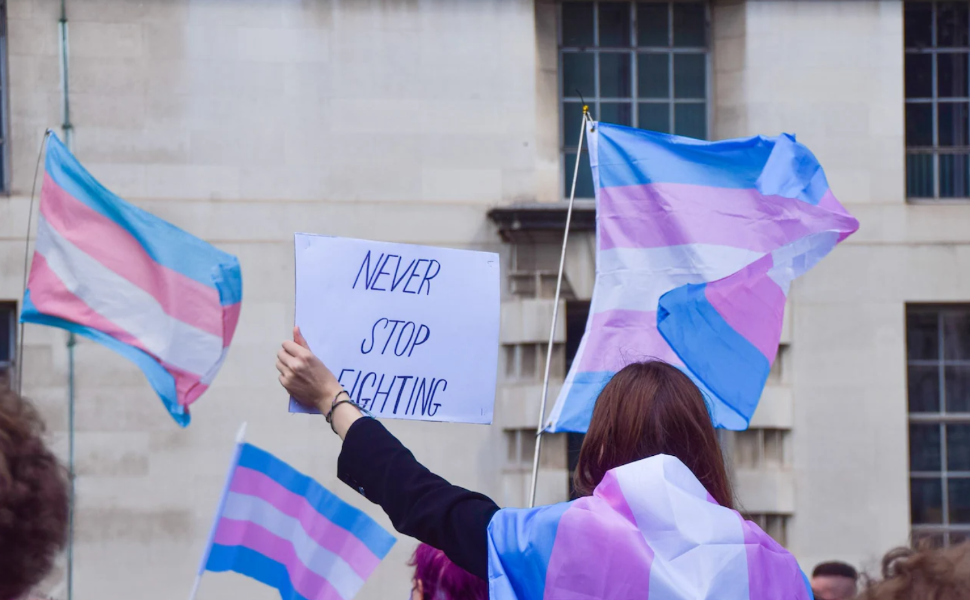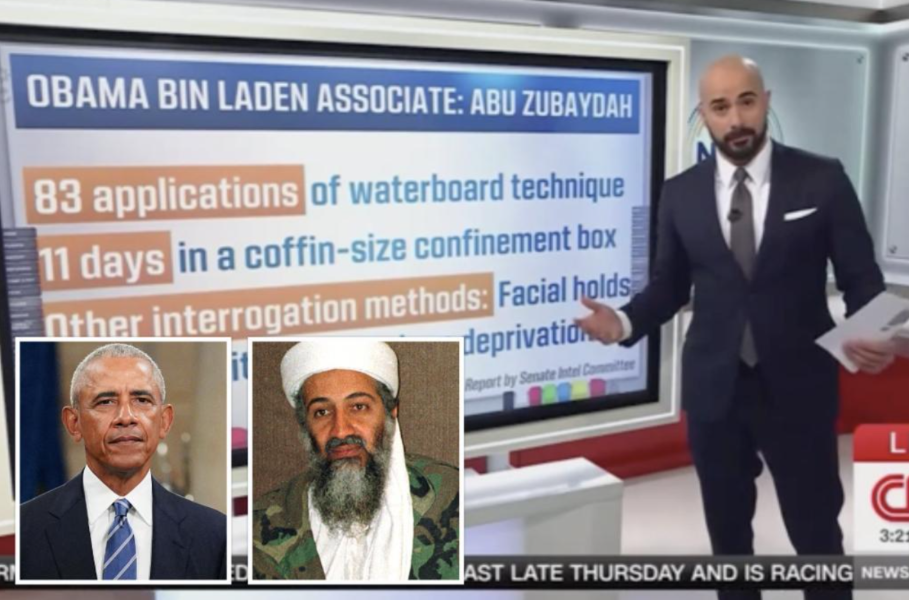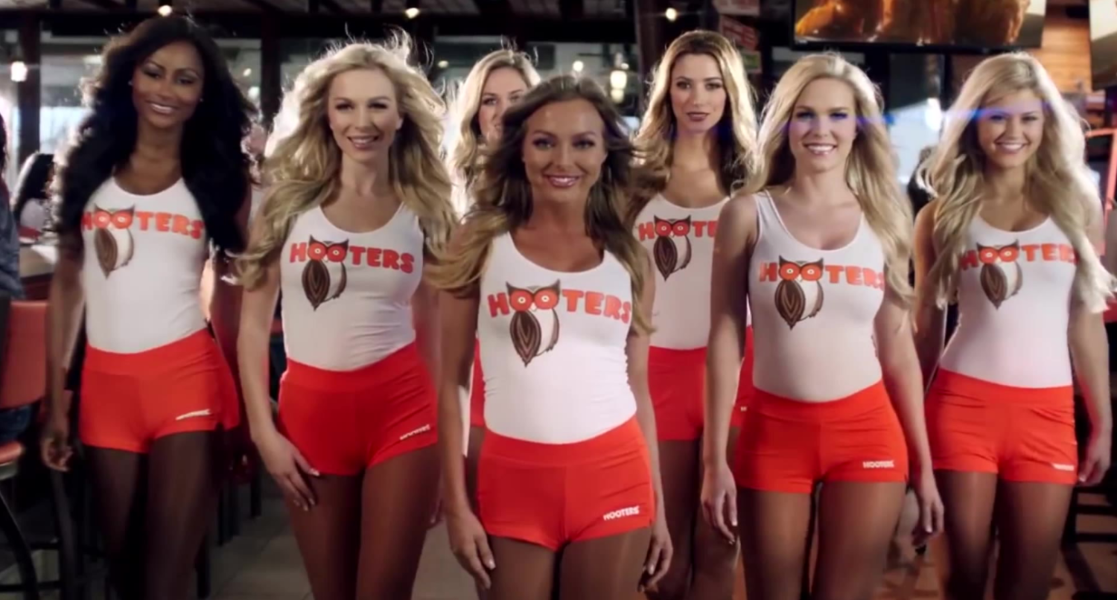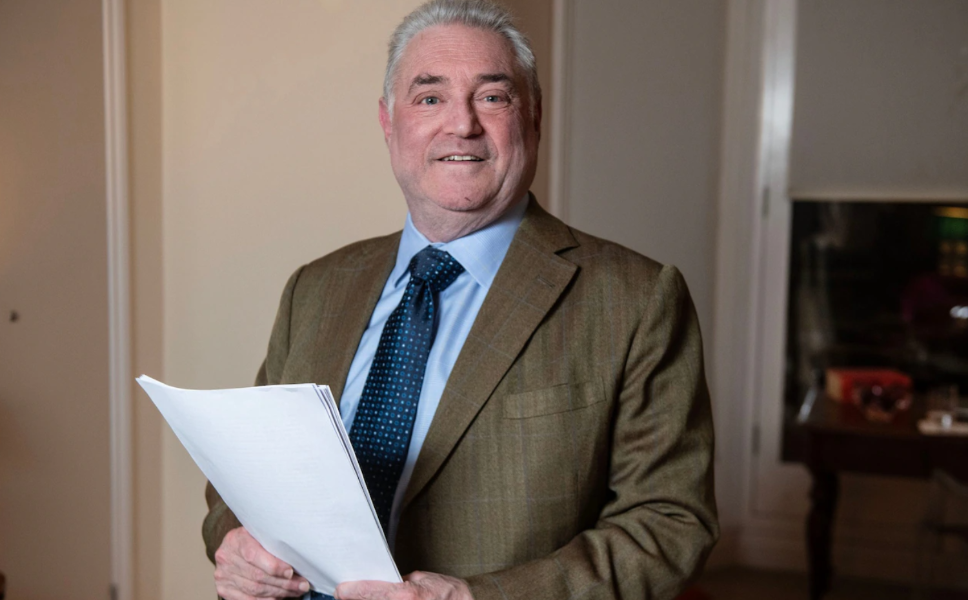-
Posts
9,982 -
Joined
-
Last visited
Content Type
Events
Forums
Downloads
Quizzes
Gallery
Blogs
Everything posted by Social Media
-
Teachers in non-academised sixth form colleges across England are preparing for potential strike action after members of the NASUWT teaching union voted in favor of industrial action over a pay dispute. This decision could see students facing disruption as teachers push for a fairer pay increase. The dispute arises from the Government's announcement that school teachers across England would receive a fully-funded 5.5% pay rise from September 2024. However, the Sixth Form Colleges Association (SFCA) has offered teachers in non-academised sixth form colleges a lower increase of 3.5% for the period between September 2024 and March, with the full 5.5% only being implemented from April. Meanwhile, their counterparts in academised sixth form colleges have been granted the full 5.5% pay rise from September 2024, putting teachers in non-academised institutions at a financial disadvantage. NASUWT general secretary Patrick Roach strongly criticized this disparity, stating: “Whilst we welcome the decision of sixth form college academy employers to pay in full a 5.5% pay award backdated to September 2024, it is simply unacceptable to expect teachers working in non-academy colleges to be paid less for doing the same job." He added, "NASUWT members across England are sending a clear message to their employers that they expect to be treated fairly and equally." According to Roach, all sixth form college employers have the financial flexibility to meet this demand, using existing funds, reserves, and additional funding allocations set to arrive in April. "There is simply no excuse and no justification for any teacher to be denied a fair and equitable pay award," he said. He further warned that industrial action could be avoided if college employers agreed to provide the full 5.5% backdated pay award. The move follows previous action taken by members of the National Education Union (NEU), who have already staged eight days of strikes in 32 non-academised sixth form colleges since November. The NEU recently suspended two further planned walkouts while consulting its members on a pay offer from the SFCA. The NASUWT began its ballot in January, calling on over 1,800 members across both academised and non-academised sixth form colleges to vote on potential action. In the 23 non-academised colleges where the vote took place, turnout reached 56%, surpassing the required threshold. The union has made it clear that unless non-academised sixth form colleges commit to backdating the full 5.5% award to September 2024, its members will take industrial action. However, once the backdated pay award is granted to teachers in sixth form college academies, NASUWT has confirmed that its dispute with those institutions will be considered resolved. As tensions rise and the potential for walkouts looms, the pressure is mounting on sixth form college employers to meet the demands of teachers and prevent further disruption to students' education. Based on a report by The Independent 2025-02-13
-
Before the 2024 presidential election, many Democrats were baffled by the disconnect between government economic data and the public’s overwhelmingly negative perception of the economy. Some believed misinformation was to blame, arguing that right-wing media had convinced voters that the country was in decline. But what if the real issue wasn’t perception, but rather the accuracy of the government’s economic indicators? What if the statistics used to showcase economic strength were fundamentally flawed, presenting an overly optimistic view of reality? Having spent years analyzing the intersection of public perception and economic data—first as comptroller of the currency and later as an adviser to financial institutions—I have grown increasingly skeptical of the numbers that Washington relies on. Many officials I’ve worked with believe in the infallibility of government statistics, treating them as hard facts. Yet my experiences outside of Washington have revealed something different: a widening gap between what the numbers say and what people are actually experiencing. Official statistics suggest low unemployment, steady wage growth, and overall economic expansion. But when traveling the country, I’ve seen something else—deteriorating cities, struggling communities, and even a homeless encampment right outside the Federal Reserve building. This disconnect has become more pronounced along partisan lines: Democrats, in general, seem more willing to trust government data, while Republicans rely more on their personal observations. For decades, federal agencies have relied on the same methodologies to report key economic indicators, rarely questioning whether these measurements truly reflect reality. To investigate, I assembled a team of researchers under the Ludwig Institute for Shared Economic Prosperity to take a deeper look. What we found was striking: for over 20 years, and especially in the months leading up to the election, public skepticism about the economy was more accurate than official statistics. Consider the most widely cited economic indicator—unemployment. The official U-3 unemployment rate suggests near-record lows, standing at just 4.2% in November 2024. But this figure is deeply misleading. It counts as “employed” millions of workers who are underemployed—those working only a few hours a week while seeking full-time jobs. It also excludes many people who have stopped job-hunting out of discouragement. Even worse, the measure ignores income levels, meaning that someone doing occasional gig work while living on the streets is still counted as employed. Adjusting for these factors, our research found that true unemployment—including underemployment and poverty wages—was actually 23.7%, meaning nearly one in four American workers was functionally unemployed. Wage statistics are similarly misleading. The government’s reported median wage of $61,900 is calculated using only full-time workers, excluding those in part-time or unstable jobs. When all workers are accounted for, the actual median wage falls to around $52,300—16% lower than the commonly cited figure. Inflation, another major election issue, also appears rosier in official data than in reality. The Consumer Price Index (CPI), which tracks prices for 80,000 goods and services, suggested that inflation had cooled by Election Day, with prices rising 4.1% in 2023. But the CPI tracks a broad range of goods, including luxury items that wealthier households purchase, which tend to have more stable prices. Lower- and middle-income Americans, however, spend a disproportionate share of their income on necessities—housing, groceries, healthcare—where prices have risen far more sharply. Our research found that for working-class households, the real cost of living has increased 35% more than the CPI suggests over the past two decades. In 2023 alone, while the CPI recorded a 4.1% increase in prices, our alternative measure showed a 9.4% rise in the cost of essential goods and services. When adjusted for this more accurate inflation measure, purchasing power at the median actually declined by 4.3% last year. Even GDP, often used as the gold standard for measuring economic growth, fails to tell the full story. While GDP has risen, much of this growth has benefited wealthier Americans, leaving many others behind. Since 2013, those with college degrees have seen notable gains, while Americans without high school diplomas have experienced stagnation. Geographic disparities have also widened, with cities like San Francisco and Boston thriving while places like Youngstown, Ohio, and Port Arthur, Texas, have fallen further behind. Taken together, these discrepancies reveal a troubling reality: the economic indicators that policymakers and media outlets rely on consistently obscure the hardships facing middle- and lower-income Americans. This isn’t to say that official statistics are without value, but they fail to capture the full picture. If policymakers in Washington are working from flawed data, their economic strategies will inevitably miss the mark. This should not be a partisan issue. Leaders from both parties would benefit from gaining a clearer, more accurate understanding of economic conditions at ground level. The alternative indicators my team has developed offer a pathway to more precise measurements, and the government should consider adopting similar methodologies to ensure that economic policy reflects reality. In a time when public trust in institutions is declining, it is essential that economic facts reflect the lived experiences of ordinary Americans. If we continue relying on misleading statistics, we will fail to address the real economic challenges facing the country. The question now is whether policymakers will recognize this gap and take steps to correct it. Based on a report by Politico 2025-02-13
-
President Donald Trump's special envoy for Russia and Ukraine, Keith Kellogg, has temporarily halted work on a proposed peace plan to engage in discussions with European allies. Kellogg intends to hold individual meetings with NATO members to gauge their perspectives on the peace process and understand what they are willing to contribute, as reported by The Telegraph. Kellogg’s discussions with NATO allies are aimed at easing concerns that major global powers could be sidelined in negotiations between Russia and Ukraine. European nations have previously discussed their roles in shaping a resolution to the ongoing three-year war. Notably, the United Kingdom and France have explored the possibility of deploying a peacekeeping force to Ukraine as part of the negotiations. The special envoy confirmed he would be engaging in talks with "prime ministers and presidents" from NATO countries and that elements of the proposed peace plan would be unveiled at the Munich Security Conference in Germany, scheduled for February 14-16. According to The Telegraph, one significant aspect of the plan involves continued U.S. support for Ukraine in exchange for access to Kyiv’s rare earth minerals—an agreement Trump has frequently discussed in recent months. Ukrainian President Volodymyr Zelensky has previously expressed openness to negotiating a deal with Trump on these resources. Despite earlier reports suggesting Kellogg would present parts of the peace plan at the Munich conference, he has denied such claims. Instead, he stated that Trump himself would reveal the plan, though he did not specify a timeline, according to Radio Free Europe. Meanwhile, European allies who have engaged with Kellogg have reportedly been reassured that the U.S. remains committed to strengthening Ukraine ahead of potential negotiations with Russia. Trump previously asserted that he could bring an end to the Ukraine war "within 24 hours." His special envoy later clarified that the goal was to conclude the conflict within 100 days of Trump’s potential inauguration on January 20. As part of the ongoing diplomatic efforts, Trump spoke with Russian President Vladimir Putin by phone on Friday and suggested that he might meet with Ukrainian President Zelensky in Washington next week. Zelensky is also scheduled to meet with Vice President JD Vance and Kellogg at the Munich Security Conference. Additionally, Bloomberg has reported that the peace plan may include freezing the conflict, leaving Russian-occupied territory in an uncertain status, and providing Ukraine with security guarantees. Based on a report by Newsweek 2025-02-13
-
Vacation packing has never been simpler for those boarding the Big Nude Boat, a unique clothing-optional cruise that promises to take passengers back to "bare-dise." Operated by Bare Necessities, a company specializing in nudist travel experiences, this cruise sets sail aboard Norwegian Cruise Line’s Norwegian Pearl, a 2,300-passenger vessel. The latest voyage departed from Miami on February 3 for an 11-day adventure that included stops at Norwegian’s private island in the Bahamas, Great Stirrup Cay, as well as scenic destinations such as St. Lucia and St. Maarten. Bare Necessities has long been dedicated to promoting body confidence, stating that their mission is to "break down the barriers against social nudity and make clothing-optional vacationing a viable and acceptable option." Onboard, passengers can participate in a variety of activities, including a passenger talent show and LED parties. The ship itself boasts numerous entertainment options, including a bowling alley, a rock climbing wall, and an impressive selection of 16 dining options and 14 bars, one of which is a whisky lounge. However, there are a few guidelines that guests must follow. While nudity is permitted in most public areas while at sea or when anchored at a port where it is allowed, passengers must be clothed whenever the ship is docked, including on their private balconies, until an official announcement declares it is acceptable to disrobe once more. In dining rooms, clothing is always mandatory. Additionally, anyone choosing to go nude must always sit on a towel. Certain areas, such as pools and dance venues, are designated as no-photo zones, and behavior such as fondling or inappropriate touching is strictly prohibited. For those eager to join a future voyage, bookings are already open for the 2026 sailing. Set to depart from Miami on February 9, the 11-day roundtrip aboard the Norwegian Pearl will take guests to the ABC islands—Aruba, Bonaire, and Curaçao—along with Jamaica and Great Stirrup Cay. Prices for the experience start at $2,000 (£1,600) per person. "Whether you’re a naturist veteran or new to nude recreation, this cruise provides an unmatched opportunity to embrace a clothes-free lifestyle in a fun, varied, and accepting environment," Bare Necessities stated. For travelers interested in alternative clothing-optional cruises, Castaways Travel offers similar experiences. Their Bliss Cruise includes sailings on Royal Caribbean’s Wonder of the Seas in both February and November 2026, as well as a voyage on Celebrity Silhouette in April 2026. Based on a report by The Independent 2025-02-13
-
Two Australian nurses have been suspended after a shocking video surfaced, appearing to show them making antisemitic threats against Israeli patients and boasting about refusing to treat them. The man and woman, both employed at a Sydney hospital, are now the subject of a police investigation, New South Wales (NSW) officials confirmed. The video, which has been widely condemned, was shared on TikTok by Max Veifer, a content creator who identifies as Israeli. His account features interactions with people he meets on Chatruletka, an anonymous video-chat platform that randomly pairs users for conversations. The footage, reviewed by the BBC, appears to have been filmed inside a hospital. In the video, a man claiming to be a doctor initially compliments Mr. Veifer’s appearance, telling him, "You have beautiful eyes," before adding, "I'm sorry you're Israeli." He then makes a reference to sending Israelis to Jahannam, an Islamic concept comparable to hell. The video takes a darker turn when he gestures across his throat in a slitting motion. A woman later joins the conversation, telling Mr. Veifer that "one day" his "time will come" and that he will die. She also states that she refuses to treat Israeli patients, declaring, "I won't treat them, I will kill them." The Australian Prime Minister, Anthony Albanese, strongly condemned the footage, calling it "sickening and shameful." Writing on X (formerly Twitter), he stated: "These antisemitic comments, driven by hate, have no place in our health system and no place anywhere in Australia." He further emphasized that "individuals found to have committed criminal antisemitic acts will face the full force of our laws." On Wednesday, NSW Police confirmed they believed they had identified those involved in the video. The health minister stated that both individuals had been immediately suspended and assured the public that they would never work in the NSW healthcare system again. This incident has sparked widespread outrage and intensified concerns about antisemitism in Australia. As authorities continue their investigation, the case serves as a stark reminder of the responsibility healthcare professionals have to uphold ethical standards and provide care without discrimination. Based on a report by BBC News 2025-02-13
-

Thailand Tops LGBTQ Tourism; Spending Soars by 38%
Social Media replied to snoop1130's topic in Thailand News
Abusive homophobic post reported and removed @OneMoreFarang -
The fragile ceasefire between Israel and Hamas is at risk after President Donald Trump warned that "all hell is going to break out" if Hamas does not release all remaining hostages by Saturday. The war in Gaza is paused under an agreement for incremental exchanges of hostages and Palestinian prisoners. However, Hamas delayed the next swap, accusing Israel of shooting Palestinians, preventing their return to northern Gaza, and blocking aid. Trump demanded the release of all 76 remaining captives, 44 of whom are believed to be alive. Julia Hartley-Brewer debates the contentious issue with journalist Yvonne Ridley. If you watch 1 video today, this should be it! "Hamas treated the hostages with kindness giving them goodie bags, gifts and palestinian mementos" Watch the full interview below: Based on a report by Talk TV 2025-02-12
-
The Labour Party has suspended 11 councillors in connection with a controversial WhatsApp group, a development that follows the recent sacking of health minister Andrew Gwynne over messages he reportedly posted in the chat. The councillors, mostly from Tameside Council with two from Stockport Council, now face investigation as Labour enforces its disciplinary measures. Alison Gwynne, the wife of the ousted minister, has also been suspended. This comes after the party had already taken action against Burnley MP Oliver Ryan, who was removed from the Labour whip and will now sit as an independent MP in the Commons. On the suspensions, a Labour Party spokesperson stated: “As part of our WhatsApp group investigation, a group of councillors have been administratively suspended from the Labour Party. As soon as this group was brought to our attention, a thorough investigation was launched in line with the Labour Party’s rules and procedures, and this process is ongoing. Swift action will always be taken where individuals are found to have breached the high standards expected of them as Labour Party members.” The suspended councillors include Claire Reid, Jack Naylor, George Newton, Vincent Ricci, Charlotte Martin, Allison Gwynne, George Jones, Brenda Warrington, Denise Ward, David Sedgwick from Stockport Council, and Holly McCormack from Stockport Council. The suspensions follow reports that three Labour members of Tameside Council, Jack Naylor, Claire Reid, and George Newton, had already stepped away from their executive duties. A spokesperson for Tameside Labour confirmed that “Councillors Reid, Naylor and Newton have decided to step away from their executive duties at Tameside Council whilst an investigation by the Labour Party is underway.” Oliver Ryan, the recently elected Burnley MP, was also suspended after the contents of the WhatsApp group came to light. In response, he expressed deep regret, stating that he “deeply regrets” his comments, which a government source described as “unacceptable and deeply disappointing.” Reports suggest that Mr. Ryan had joked about a fellow Labour MP being gay. In a statement on X, Mr. Ryan apologized for remarks he made in the group between 2019 and early 2022. “Some of the comments made in that group were completely unacceptable, and I fully condemn them,” he said. He also admitted that he regretted not speaking out at the time and acknowledged that failing to do so was wrong. He confirmed that the WhatsApp group had been created by his former employer, Andrew Gwynne. Andrew Gwynne, who had held various frontbench roles in opposition, was dismissed as health minister and suspended from the party for alleged racist and sexist remarks made in the group. Reports suggest that he made racist comments about Labour MP Diane Abbott and sexist remarks about Deputy Prime Minister Angela Rayner. It is also alleged that he expressed hope that a pensioner would soon die after she inquired about bin collections and joked about a constituent being "mown down" by a truck. Mr. Gwynne has since apologized, stating he deeply regretted his “badly misjudged comments” and any offence caused. His suspension is the latest in a series of Labour disciplinary actions, following the resignations of former treasury minister Tulip Siddiq last month and ex-transport minister Louise Haigh in November. Based on a report by Sky News 2025-02-12
-
- 1
-

-
Israeli Prime Minister Benjamin Netanyahu has issued a firm warning that the ceasefire in Gaza will end, and Israel will resume "intense fighting" if Hamas does not release the hostages by midday Saturday. The statement came after a four-hour security cabinet meeting on Wednesday evening. “If Hamas does not return our hostages by Saturday noon, the ceasefire will end, and the IDF will return to intense fighting until Hamas is finally defeated,” Netanyahu declared in a video message. He also emphasized that the security cabinet supported U.S. President Donald Trump’s demand for the immediate release of hostages by the deadline. The warning follows Hamas’s announcement that it would delay the scheduled hostage release, claiming Israeli violations of the truce. While Trump has explicitly called for all captives to be freed, Netanyahu's statement did not specify whether Israel would only resume fighting if all 76 remaining hostages were not released. However, an Israeli official stated that Jerusalem would not move forward with any ceasefire agreements unless Hamas released “all nine hostages… in the coming days.” Currently, 17 hostages remain set for release in the first phase of the ceasefire, with nine of them believed to be alive. “If there is no progress that gets the deal back on track, decisions must be made,” the official said. “Hamas is being faced with the massive scale of destruction [in Gaza], is counting the dead, and publishing the list of its dead commanders.” The hostage crisis has revealed harrowing details of the captives’ treatment. The mother of hostage Eliya Cohen stated on Sunday that her son had been held in a tunnel, chained for the entire duration of his captivity, and left with an untreated bullet wound. “He gets little food or daylight,” she revealed. One of the three civilian men released on Saturday—Ben Ami, Sharabi, and Levy—described the brutal conditions in which they were kept. “They treated us like animals,” he told Kan, Israel’s public broadcaster. Reports suggest that the three were interrogated separately and tortured. During these sessions, they sustained burns from a white-hot, unidentified object. At one point, one of the hostages collapsed, leading the others to fear he had died. “I was bound in a dark tunnel, without air, without light. I couldn’t stand or walk, and only toward the time of the release did the terrorists remove the chains and I learned to walk again,” one former hostage recounted. The captives were reportedly kept mostly in tunnels, always in dark, unventilated spaces, and had to plead with their captors to allow them to relieve themselves more than once a day. With the deadline fast approaching, tensions remain high as Israel prepares for the possibility of renewed conflict. Based on a report by BBC | TOI 2025-02-12
-
Newly appointed Health Minister Ashley Dalton has come under scrutiny for her past remarks on gender identity, same-sex bathrooms, and even the concept of people identifying as animals. Dalton, who was elected as MP for West Lancashire in 2023, has previously expressed support for removing gender-specific toilets and has defended individuals who choose to identify outside traditional categories. Keir Starmer’s decision to promote Dalton follows the dismissal of Andrew Gwynne from the role due to his involvement in a controversial WhatsApp group. However, the Prime Minister now faces mounting questions over Dalton’s stance on gender issues. During a discussion on Twitter in 2016, she firmly stated: “Trans women aren’t male. They’re women.” She further argued, “Personally I think we shouldn’t have gendered bathrooms at all.” When questioned on whether this applied to changing rooms, Dalton responded: “Loads of places already do this with cubicles for privacy.” Another resurfaced Twitter exchange from 2016 has fueled further debate, as Dalton was asked whether people should be taken seriously if they identified as a llama. Her response was unequivocal: “Yes. And treat you with dignity and respect.” Before her promotion, Dalton served as Shadow Minister for Women while Labour was in opposition. Her views on gender identity have reignited discussions within political circles, particularly concerning Labour’s stance on gender recognition laws. When questioned about Dalton’s past statements, the Prime Minister’s official spokesperson distanced the government from her remarks, stating, “Comments made by MPs are one for the Labour Party, not for me. But you’ve got the Government’s position on gender more broadly.” Despite Labour’s previous commitment to “modernising” gender recognition laws, the proposed reforms were notably absent from last year’s King’s Speech outlining government priorities. Reports suggest that ministers have shelved these plans amid growing concerns over the polling surge of Reform UK. Dalton’s appointment marks a contentious moment for the Labour government, with critics and supporters alike debating her views and their potential impact on policy decisions in her new role as Health Minister. Based on a report by Daily Mail 2025-02-12
-
The ongoing ceasefire between Israel and Hamas faces a critical test as Hamas announces the suspension of planned hostage releases, citing Israeli violations of the agreement. The United Nations has responded by urging both parties to uphold their commitments to the fragile ceasefire. "We want to make sure that all parties abide by their stated agreements under the ceasefire, and it's crucial that they uphold all the relevant aspects of the agreement and all the relevant timelines," UN spokesperson Farhan Haq stated. When pressed on whether Hamas's decision constitutes a violation of the ceasefire, he acknowledged that "any delays" would be a concern. "We want to make sure that there are no delays, no hold-ups and all of the implementations of the agreement go ahead as previously planned." The Hostages and Missing Families Forum has called on mediating nations to intervene and ensure the ceasefire deal remains intact. The organization expressed its support for the Israeli government, urging it to maintain conditions that would facilitate the continuation of the agreement. "All hostages must be urgently rescued from this horrific situation," the group stated. Despite announcing the delay, Hamas has indicated that the planned hostage release scheduled for Saturday could still proceed if Israel adheres to its obligations under the truce. The group emphasized that it had made the announcement in advance to provide mediators with sufficient time to pressure Israel into compliance. "Hamas has implemented all its obligations accurately and on time," the group stated. It listed several alleged Israeli violations, including obstructing the return of displaced Gazans to northern Gaza, firing at Palestinians, preventing the entry of essential supplies such as fuel and medical aid, and delaying the removal of rubble. The crisis follows a recent exchange in which Hamas freed three Israeli hostages—Eli Sharabi, Ohad Ben Ami, and Or Levy—who were handed over to the Red Cross. The release process, however, drew criticism after the men were paraded on stage with armed men before being transferred. Concerns were raised about their health, with Sharabi’s family expressing shock at his "gaunt" appearance. Israeli President Isaac Herzog described their return as the end of "491 days of hell, starved, emaciated and pained." Israel has swiftly responded to Hamas’s suspension of hostage releases, condemning it as a direct breach of the ceasefire agreement. Israeli Defence Minister Israel Katz issued a statement declaring, "Hamas' announcement to stop releasing Israeli hostages is a complete violation of the ceasefire agreement and the deal to release the hostages." As tensions escalate, the fate of the ceasefire remains uncertain, with both sides accusing the other of noncompliance. Based on a report by BBC 2025-02-11
-
Kanye West, now legally known as Ye, has once again stirred controversy with a barrage of antisemitic remarks on X, leading the platform to impose a “sensitive content” warning on his account. His profile now displays a cautionary message, warning users that his content may be offensive, and similar warnings have been placed over all of his images and videos. The rapper’s posts on Friday, February 7, included inflammatory statements such as “I’m a Nazi” and “I don’t like or trust no Jewish person, and this is completely sober with no Hennessy.” His comments, which quickly ignited widespread backlash, have drawn calls for his permanent removal from the platform. Among those demanding action is Friends actor David Schwimmer, who criticized X owner Elon Musk for allowing West to continue posting. “This is so 2022,” Schwimmer remarked over the weekend. “We can’t stop a deranged bigot from spewing hate-filled, ignorant bile… but we CAN stop giving him a megaphone, Mr. Musk.” He emphasized the rapper’s massive influence, stating, “Kanye West has 32.7 million followers on your platform, X. That’s twice as many people than the number of Jews in existence.” Schwimmer continued his condemnation, pointing out the real-world consequences of West’s rhetoric. “His sick hate speech results in REAL LIFE violence against Jews. I don’t know what’s worse, the fact that he identifies as a Nazi (which implies he wants to exterminate ALL marginalized communities including his own) or the fact that there is not sufficient OUTRAGE to remove and ban him from all social media at this point.” As the 2025 Super Bowl unfolded on Sunday, West remained active on X, despite reports that some users were unable to locate his profile through the platform’s search function. The additional restrictions placed on his account reflect an ongoing struggle by social media companies to balance free speech with the need to curb hate speech. West’s troubling history of antisemitic statements stretches back to December 2022 when he infamously praised Adolf Hitler during an appearance on right-wing conspiracy theorist Alex Jones’s show, Infowars. “I like Hitler,” West declared, shocking audiences with his repeated admiration for the Nazi leader. That controversy led to major brands such as Adidas, GAP, and Balenciaga severing ties with the rapper. Adidas condemned his remarks at the time, calling them “unacceptable, hateful and dangerous,” and asserting that they “violate the company’s values of diversity and inclusion, mutual respect and fairness.” Despite the severe backlash and loss of lucrative business deals, West has continued to use his platform to push antisemitic rhetoric, leaving many questioning why he is still allowed to have a presence on X. As the debate over content moderation and platform responsibility rages on, West’s case serves as a stark reminder of the power social media grants individuals—even those who use it to spread dangerous and hateful ideologies. Based on a report by BBC 2025-02-11
-
Former President Donald Trump stated on Sunday that he is in "no rush" to develop Gaza, framing his vision as a long-term project that would bring stability to the Middle East. His remarks came after he proposed an American-led redevelopment of the war-torn region, a plan that has already sparked concerns among Arab leaders and even some of his Republican allies. "Think of it as a big real estate site, and the United States is going to own it, and will slowly, very slowly, we’re in no rush, in development. We’re going to bring stability to the Middle East," Trump told reporters. His proposal represents a dramatic departure from decades of U.S. foreign policy in the region, and it remains unclear how it would be implemented. Trump described Gaza as "a demolition site" and outlined his vision for its future. "It’ll be reclaimed. It’ll be leveled out, fixed up. There won’t be anybody there. Hamas won’t be there. We’ll be building through other of the very rich countries in the Middle East, they’ll be building some beautiful sites for the people, the Palestinians, to live in," he said. "They’ll be living in harmony and peace, relatively, for the first time in hundreds of years." On Friday, Trump asserted that Israel would hand over control of Gaza to the United States and reiterated his stance that Palestinians should leave the region. He previously suggested that they be resettled in Egypt and Jordan, though both countries quickly rejected the idea. Trump argued that his plan "would lead to great stability in the area" and claimed it could be achieved with "very little money." However, he has yet to provide details on how his plan would be executed, raising questions about whether it would require the deployment of American troops. The lack of clarity has fueled skepticism among U.S. policymakers and Middle Eastern leaders, who remain uncertain about the feasibility and implications of Trump's proposal. Based on a report by The Hill 2025-02-11
-
Donald Trump took to social media to take a jab at Taylor Swift as he made an early departure from the 2025 Super Bowl, where the Kansas City Chiefs suffered a brutal 40-14 defeat at the hands of the Philadelphia Eagles. The former president, known for his outspoken nature, didn’t hold back, using his Truth Social platform to mock the pop superstar. He shared videos showcasing the stark contrast in their receptions at the New Orleans Superdome—highlighting the cheers he received compared to the boos directed at Swift when she appeared on the stadium’s big screen. Amplifying the taunt, Trump reposted another user’s comment that read, *"Trump gets massive cheers at the Super Bowl while Taylor Swift gets booed."* Swift had already endured a rough night as she watched her boyfriend, Travis Kelce, and his Chiefs team struggle against a dominant Eagles performance. To make matters worse, Trump’s social media trolling only added salt to the wound. The former president had previously predicted a Chiefs victory and had spoken highly of their star quarterback, Patrick Mahomes, who has been vocal about his support for Trump. However, Trump's optimism faded as the game progressed, leading to his early exit shortly after halftime. His departure was not unexpected, and before leaving, he took the time to pose for a photo with Mahomes’ family, including his mother, brother, and sister, in his suite. Trump’s history of animosity toward Swift is no secret. The two have been at odds for years, particularly after Swift publicly endorsed Joe Biden and Kamala Harris in the last two elections. In September, Trump made his disdain crystal clear when he wrote on Truth Social, *"I HATE TAYLOR SWIFT!"*—a reaction to the singer’s endorsement of Harris. Just days before the Super Bowl, Swift had once again encouraged her fans to get involved in the political process. She posted a lengthy Instagram message urging her millions of followers to research the election, register to vote, and provided a link to vote.gov. Notably, she did not directly mention or attack Trump in her message. Despite their ongoing feud, Trump and Swift briefly found themselves on the same side leading up to the big game, with both expecting a Chiefs victory. Trump had also showered praise on Mahomes and his wife, Brittany, stating that they supported his 2024 presidential campaign. *"I hate to do it,"* Trump had said while predicting the Chiefs’ success. However, the night didn’t go as expected, and his quick exit from the game signaled his disappointment. Swift, too, had little to celebrate, witnessing both Kelce’s crushing loss and the wave of jeers that accompanied her appearance on the stadium’s screens. While the Super Bowl was a night to remember, for both Swift and Trump, it became a different kind of spectacle—one filled with bitter losses, social media taunts, and a rivalry that continues to play out on and off the field. Based on a report by The Daily Mail 2025-02-11
-
As Donald Trump made his bid to reclaim the White House in 2024, an ominous and largely unknown threat loomed over his campaign—an alleged assassination plot by Iran. The extent of the danger, forced Trump’s team to take extraordinary precautions, including the use of a decoy plane in an effort to outmaneuver potential attacks. U.S. authorities were deeply concerned about an Iranian operation targeting Trump. The threat stemmed from Iran’s longstanding vendetta against him, dating back to 2020 when, as president, he ordered the airstrike that killed Qassem Soleimani, one of Iran’s top military commanders. The gravity of the situation remained clear in Trump’s mind. Just last week, he declared that he had instructed his team to *"obliterate"* Iran if they assassinated him, though he later softened his stance by expressing interest in a *"verified nuclear peace agreement."* Law enforcement agencies had warned Trump’s camp that Iranian operatives were inside the U.S. with access to surface-to-air missiles. The most alarming scenario they feared was an attack on Trump’s personal jet, *Trump Force One*, during takeoff or landing. The tension escalated following a failed assassination attempt on Trump at his golf course in West Palm Beach, Florida, on September 15. While no direct link was established between Iran and that incident—or an earlier shooting in Pennsylvania where a bullet grazed Trump’s ear—his security detail took the threats seriously. In response, a high-stakes decision was made: for one critical trip, Trump would secretly board a different aircraft while most of his staff flew on *Trump Force One*. The decoy plane belonged to real estate mogul Steve Witkoff, a close friend of Trump who later became his envoy to the Middle East. Few within the campaign knew of the plan until just before takeoff. As staffers took their seats, they noticed something unusual—Trump’s usual spot was empty. Chris LaCivita, one of his campaign managers, turned to the group and said, *"The boss ain't riding with us today. We had to put him into another plane. This is nothing but a sort of test for how things may happen in the future."* The moment, later dubbed the *“Ghost Flight”* within the campaign, was filled with unease. Some aides worried that they were being used as decoys themselves, questioning why they had been placed on *Trump Force One* if Iranian operatives truly had missile capabilities. Tension filled the cabin, with one aide later describing the atmosphere as *“serious sh*t”* mixed with *"gallows humor galore."* Security concerns weren’t limited to the skies. On September 18, after a rally in Long Island, New York, the Secret Service alerted Trump’s team to intelligence suggesting that an attacker might attempt to fire upon his motorcade. LaCivita, always sharp-tongued, warned Trump’s longtime social media strategist, Dan Scavino: *"Don't f**king hang out the window and take photos, because you're a f**king target."* The following week in Pennsylvania, another unnerving moment unfolded when Secret Service agents spotted a drone trailing Trump’s motorcade. Without hesitation, officers used an electromagnetic weapon to disable the device, shooting it out of the sky. Throughout the campaign, Trump played down these threats in public, often boasting about his role in taking out Soleimani. But those close to him noticed a shift. He began speaking less about the strike, showing heightened concern about the layout and security of his events. Privately, he even wondered whether Americans had grown tired of seeing their president under constant threat. *"Would voters really want to go through four years of this?"* he reportedly questioned. As Trump fought to return to the Oval Office, the dangers he faced went far beyond political opposition. Behind the scenes, his team navigated a deadly game of cat and mouse, taking drastic measures to stay ahead of potential assassins. While the public saw a candidate rallying his base, behind the curtain, a far graver reality shaped his campaign—one where every flight, every motorcade, and every public appearance carried the weight of an unseen and ever-present danger. Based on a report by The Hill 2025-02-11
-
Deep beneath Greenland’s icy surface lies a forgotten relic of the Cold War—an abandoned U.S. military base that once housed a covert nuclear missile project. While former President Donald Trump made headlines by suggesting the U.S. should buy Greenland, citing national security concerns, this Arctic territory has long held strategic importance for the American military. More than 60 years ago, a secret operation was underway beneath Greenland’s frozen landscape: Camp Century. Constructed in 1959 by the U.S. Army Corps of Engineers, Camp Century was a subterranean complex built within a glacier, consisting of two miles of tunnels. On the surface, it was presented as a nuclear-powered research facility, and journalists were even invited to document its activities. However, hidden within this frozen labyrinth was a top-secret initiative known as Project Iceworm—a plan to build a network of underground tunnels and railway tracks capable of housing and deploying 600 nuclear missiles. These missiles were positioned to be launched over the North Pole toward the Soviet Union in the event of conflict. For seven years, Camp Century operated in extreme isolation, situated 127 miles from the nearest human settlement. Access to the base was only possible via sled, and the harsh Arctic conditions made travel treacherous. Despite these challenges, those stationed there did not necessarily perceive the camp as dangerous. “People thought it was dangerous,” said Austin Kovacs, an army research engineer who worked at Camp Century. “And it was not dangerous. It was comfortable. And at times it was very, very monotonous,” he told National Geographic. Despite its covert purpose, Camp Century was designed to be self-sustaining and relatively livable. It featured a clinic, a theater, and even a library. “We had everything you could imagine—lights, and heat, and all that kind of stuff,” recalled John Fresh, a soldier who visited the base. “It was cold. I mean, you know, when you walk down there, you could feel it’s like walking into a freezer,” he told NPR. Project Iceworm remained a well-guarded secret for years. It was only in 1968—following the crash of a U.S. jet carrying nuclear bombs in Greenland—that an investigation revealed its existence. The inquiry uncovered that Denmark’s prime minister had secretly approved the project, though its feasibility had been vastly overestimated. Military engineers had not accounted for the glacier’s ever-changing nature; the movement of the ice caused steel tracks to buckle, missiles to become unstable, and even the camp’s atomic reactor to be at risk. By 1963, the nuclear reactor was shut down, and by 1967, the entire base was abandoned. Just two years later, in 1969, Camp Century lay in ruins, swallowed by ice and snow, its wooden beams splintered and hallways filled with drifting snow. Decades later, modern scientists continue to uncover new details about this lost Cold War base. In April of last year, NASA scientist Chad Greene and his team were flying over Greenland when their radar unexpectedly detected the remnants of Camp Century beneath the ice. “We were looking for the bed of the ice and out pops Camp Century,” said Alex Gardner, a cryospheric scientist at NASA’s Jet Propulsion Laboratory. “We didn’t know what it was at first.” Their findings provided an unprecedented look at the base’s tunnels and structures, which now sit buried 100 feet below the surface. “In the new data, individual structures in the secret city are visible in a way that they’ve never been seen before,” Greene said. Though long forgotten by the world, Camp Century remains an eerie reminder of a time when the Arctic ice concealed the ambitions of a global superpower. Based on a report by The Independent 2025-02-11
-
State schools across England are struggling with a lack of spare places in certain year groups, raising concerns that they may not be able to cope with an influx of students due to Labour’s tax policies on private education. Figures obtained by *The Times* reveal that at least 27 local authorities are already oversubscribed in specific age groups, spanning both rural and urban areas. These include South Gloucestershire and Rutland, as well as major cities such as Bristol, Hull, and Coventry. The strain is particularly acute in secondary schools, with Years 7 and 8 having the least available spaces. Across 87 areas, councils reported at least one year group with fewer than 100 vacant places. Experts say the findings highlight the limited flexibility within parts of the state school system, which Labour has insisted will be able to accommodate students transferring from private schools due to its tax increases. Labour’s policy changes include the removal of VAT exemptions for private schools, which took effect at the start of the year and resulted in tuition fees rising by 20 per cent. Additionally, business rates relief for private schools is set to end in April. According to official government estimates, these financial pressures will cause private school enrollment to decline by approximately 37,000 students. Of those, 35,000 are expected to seek places in the state sector. Government ministers maintain that, on a national scale, state schools have enough capacity to absorb these students, as thousands of children transition between the private and state systems every year. In total, there are 578,000 unfilled places in primary schools and 465,000 in secondary schools. Data shows that 83 per cent of primary schools and 77 per cent of secondary schools have at least one available space. However, figures obtained through freedom of information requests indicate that some councils are already warning of severe shortages in certain year groups. Critics of Labour’s tax plan argue that while there may be vacancies nationwide, the key issue is whether there are sufficient places in the right schools and regions to accommodate students who are forced to transfer. Among the most affected areas, Year 7 is already over capacity in 20 councils, with two reporting that they have no spare spaces at all. Nottinghamshire has the highest number of additional students needing places, with 468, followed by Walsall (258), Bristol (177), Stoke-on-Trent (131), and Cheshire East (128). In total, 22 local authorities have reported that Year 7 is either completely full or oversubscribed. The issue extends to Year 8, where 13 councils, including Sutton, North Tyneside, and Kensington & Chelsea, report no available spaces. The problem is not limited to secondary schools, as primary school parents preparing for their children to transition to secondary education may also face difficulties. In four areas—City of London, Solihull, Isles of Scilly, and Sutton—there are fewer than ten available places for Year 5 students. Meanwhile, Year 6 is already oversubscribed in Trafford, Warrington, Sutton, Bolton, and Walsall. The figures come from a Department for Education (DfE) survey on school capacity for the 2022-23 academic year, the most recent data available. However, the breakdown by year group has not previously been made public. The DfE has pointed out that schools sometimes have greater capacity than reported, as additional spaces have been created since the survey was conducted. Despite these reassurances, critics argue that Labour’s policy could result in significant disruption for families who can no longer afford private school fees and are left without suitable state school options. Julie Robinson, chief executive of the Independent Schools Council, voiced concerns about the lack of appropriate spaces. “There might not be the right spaces in the right places for children whose education is disrupted by this policy,” she said. With state schools in some areas already stretched to capacity, the question remains whether Labour’s policy will create further strain on an education system that is already struggling to accommodate demand. Based on a report by The Hill 2025-02-11
-
President Donald Trump has ignited a fierce controversy within the arts community by announcing sweeping changes to the John F. Kennedy Center for the Performing Arts. Declaring his intention to usher in a "golden age in arts and culture," Trump has dismissed several board members and appointed himself as chairman. His first major act in this role is the immediate prohibition of performances featuring drag artists at the prestigious institution in Washington, D.C. The announcement comes amid a turbulent start to Trump’s second term in office. Just three weeks into his return to the White House, his administration has aggressively dismantled government agencies, frozen spending, and slashed more than two million federal jobs. Now, Trump has turned his focus to the arts. Taking to his Truth Social platform, the president outlined his vision for the Kennedy Center’s future, stating, “At my direction, we are going to make the Kennedy Center in Washington DC, GREAT AGAIN. I have decided to immediately terminate multiple individuals from the Board of Trustees, including the Chairman, who do not share our Vision for a Golden Age in Arts and Culture.” He went on to declare, “We will soon announce a new board, with an amazing Chairman, DONALD J. TRUMP!” To accompany the post, Trump shared an AI-generated image of himself conducting an orchestra, captioned: “Welcome to the new Kennedy Centre!” Trump was explicit in his intention to reshape the center’s programming along conservative lines. He decried past events featuring drag performers, particularly those catering to younger audiences, writing, “The Kennedy Centre featured Drag Shows specifically targeting our youth. THIS WILL STOP.” He further declared, “The Kennedy Centre is an American Jewel, and must reflect the brightest STARS on its stage from all across our Nation…THE BEST IS YET TO COME!” The announcement has sparked outrage among artists and entertainers, many of whom view it as an attack on artistic freedom. Comedian Steve Martin mocked the move in a post on X, suggesting that under Trump’s leadership, the Kennedy Center’s future lineup would include “the incomparable vocal talents of Lara Trump,” a jab at the president’s daughter-in-law, whose attempts at a singing career have been widely criticized. “MC will be DJ Trump. I bet he can be encouraged to dance a bit!” Martin added. “Big Macs available in the lobby. You’ll have a super patriot time.” Trump’s decision to seize control of the Kennedy Center’s board is a dramatic departure from long-standing bipartisan traditions at the institution, where the 36-member board has historically been evenly divided between Republican and Democratic appointees. In his final weeks in office, former president Joe Biden appointed several close aides, including White House press secretary Karine Jean-Pierre, to the board. Trump’s first-term appointees included figures such as former Florida attorney general Pam Bondi and country singer Lee Greenwood, whose song *God Bless the USA* became an anthem of Trump’s 2024 campaign. The Kennedy Center’s longtime chairman, financier and philanthropist David Rubenstein, had originally planned to retire in January. However, following Trump’s election victory, the center announced that he would remain in the role until September 2026. It remains unclear whether Trump’s sweeping changes will alter those plans or if further restructuring is imminent. As Trump tightens his grip on one of America’s most renowned cultural institutions, reactions from the arts world suggest that his vision of a “golden age” may be met with fierce resistance. Based on a report by The Times 2025-02-11
- 109 replies
-
- 13
-

-

-

-

-

-

-

-
As America under Donald Trump moves swiftly to dismantle the dominance of diversity, equity, and inclusion (DEI) policies, Britain remains stubbornly entrenched in what some would call a culture of wokery. The United States, often criticized for exporting everything from baseball caps to linguistic oddities like “step up to the plate” and “my bad,” might, for once, be setting an example Britain should follow. Trump’s second term has already seen decisive action against DEI policies. In a striking display of his agenda, he signed an executive order banning men from competing in women’s sports, standing alongside young female athletes as he did so. His administration has wasted no time in targeting what it sees as ideological excesses, including slashing government spending on DEI projects. These cuts have included $2 million earmarked for gender transition surgeries in Guatemala, $1.5 million to promote DEI initiatives in Serbia, and even a $32,000 grant for a transgender comic book in Peru. More frivolous still, funds were being allocated to print customized condoms for foreign aid programs. Trump’s stance has extended beyond budget cuts. Admiral Linda Fagan, the first female leader of the United States Coast Guard, was abruptly dismissed, with Trump’s team branding her appointment a token DEI hire. The move was met with both outrage and laughter, as White House spokespeople openly derided spending decisions made under the Biden administration. Britain, however, continues to pour public money into ideological projects. This week, it was revealed that London’s Science Museum labeled Lego as “heteronormative,” an assertion so absurd it barely merits response. Meanwhile, taxpayers' money continues to fund controversial organizations such as the transgender charity Mermaids, which was found to have misled the public about the effects of puberty blockers and provided chest binders to children as young as 13, without parental consent. The Charity Commission’s investigation also unearthed disturbing connections to a group accused of supporting paedophilia. Beyond ideology, wasteful spending remains rampant. The Arts and Humanities Research Council, a body tasked with funding academic inquiry, has allocated £841,830 to a project titled *The Europe that Gay Porn Built*, £759,293 to *Comics and Race in Latin America*, and £123,470 to *Decolonising South-east Asian Sound Archives*. Meanwhile, the Department for Business has handed £200,000 to Shanghai to encourage "creativity in Chinese communities"—a baffling allocation, given that Shanghai’s GDP per capita is higher than Britain’s. Similarly, £244,061 has been sent to Kuala Lumpur to address congestion issues, despite the city’s economic standing surpassing much of the UK. The foreign aid budget is equally perplexing. This year alone, Britain is handing £133 million to Pakistan, a country plagued by corruption; £57 million to India, which has its own space program; and £13 million to South Africa, a country that hardly needs UK taxpayer support when Cape Town is thriving. Despite these missteps, there are hints that the “Trump effect” might be influencing Britain. Major corporations, including Meta and Amazon, are rapidly scaling back their DEI initiatives, a shift that will inevitably impact their UK operations. Even London’s mayor, Sadiq Khan, seems to be taking note. Over the weekend, the “he/him” pronouns mysteriously vanished from his Twitter bio. Though he later blamed a “technical error” and restored them following public ridicule, it suggests a subtle acknowledgment of shifting tides. Yet, many institutions remain untouched by this change. The Scottish branch of the National Farmers Union has deemed the term “farmer’s wife” inappropriate. Civil servants are threatening to strike over a mere two-day-per-week return to the office. Sir Keir Starmer’s Labour Party has also undone Conservative efforts to curb Britain’s so-called “sicknote culture,” where benefits can be claimed under dubious health complaints. One politician who has dared to speak out is Oliver Freeston, a Reform councillor for North East Lincolnshire. He recently argued that “anxiety and depression” have become convenient justifications for out-of-work benefits, likening them to the “bad back” excuses of the past. His remarks earned him an official reprimand from a compliance officer, warning him to moderate his language or face disciplinary action. Meanwhile, in media and advertising, the relentless social engineering continues. There is no objection to interracial couples, yet their omnipresence in advertising seems almost a deliberate exercise in demographic messaging. American companies, in contrast, appear to be taking a different approach. Following Trump’s re-election, Apple’s Christmas campaign featured a white family reflective of the majority population in the U.S.—a stark contrast to the direction of British advertising. One can only hope that Britain is beginning to recognize the pitfalls of its ideological path. Reform UK’s rise in the polls suggests that voters are gravitating towards a platform of common sense, whether or not they support the party itself. The backlash against DEI is no longer confined to niche political circles; it is becoming a mainstream issue. Mocking the absurdities of the DEI agenda may be cathartic, but the broader implications are no laughing matter. If Britain doesn’t course-correct, it risks further cultural and economic decline. The ideology fueling this decline does not merely inconvenience—it threatens to unravel the very foundations of Western society. The question remains: will Britain wake up before it’s too late? Based on a report by The Daily Telegraph 2025-02-11
-
Trump has expressed deep concern over the condition of three Israeli hostages released by Hamas on Saturday, comparing their frail and emaciated appearance to Holocaust survivors. Speaking to reporters aboard Air Force One, he warned that the United States' patience could eventually wear thin. I watched the hostages come back today. And they looked like Holocaust surivors. They were in horrible condition. They were emacitated. It looked like many years ago the Holocaust survivors. I don't know how much longer we can take that...We're going to lose our patience" He emphasized how much their appearance had changed, saying, “They look like they haven’t had a meal in a month. These were healthy people a reasonably short number of years ago, and now they look like they’ve aged 25 years. They literally look like the old pictures of Holocaust survivors, the same thing. No reason for that.” Trump acknowledged that under the current ceasefire and hostage agreement, captives were expected to be released gradually, but he highlighted the severity of their mistreatment. “They are in really bad shape, they have been treated brutally, horribly. Even the ones that came out earlier, they were in a little bit better shape, but mentally they were treated so badly. Who could take that?” he asked. He concluded his remarks with a warning, suggesting that the situation could push the United States to take further action. “You know, at some point, we’re gonna lose our patience.” Based on a report by Sky News | TOI 2025-02-11
-
CNN found itself at the center of ridicule on Friday night after an embarrassing on-air mistake that mistakenly conflated former President Barack Obama with Osama bin Laden. The blunder led to widespread mockery, further tarnishing the network’s struggling reputation. During a segment on *CNN News Central*, a graphic appeared behind anchor Boris Sanchez, erroneously reading “OBAMA BIN LADEN.” The report was covering President Trump’s plan to send illegal migrants to Guantanamo Bay, Cuba, and included a discussion about Al-Qaeda terrorist Abu Zubaydah, who remains imprisoned at the controversial detention facility. While Sanchez did not utter the mistaken phrase, the glaring error on the screen did not go unnoticed. The graphic, displayed in bold all-caps, read: “OBAMA BIN LADEN ASSOCIATE: ABU ZUBAYDAH.” Obama had previously pledged to shut down Guantanamo Bay, a promise that ultimately went unfulfilled. His inability to close the facility paved the way for Trump’s proposed initiative to transfer up to 30,000 criminal migrants there. The mistake sparked instant reactions online, with many finding humor in the high-profile gaffe. “CNN is gone. Might as well turn off the lights,” quipped X user Clara Winslow. Another user, Daniel, questioned the network’s credibility, writing: “Freudian slip much CNN?” Some viewers, however, were convinced the mistake was more than just an accident. “That was not a misprint. Shame on whoever did that,” a liberal-leaning account on X stated, suggesting intent behind the error. The incident adds to a growing list of challenges for CNN. The network, long criticized by former President Trump and his supporters, has been struggling with declining viewership and ongoing staff reductions. Just last month, CNN cut 200 jobs as part of a wave of layoffs across the company. Prominent anti-Trump figures like Jim Acosta have also recently departed, further signaling the network’s internal turmoil. Based on a report by NYP 2025-02-11
-
The arrival of American sports bar chain Hooters in Newcastle upon Tyne has sparked backlash among locals, with critics accusing the company of promoting the objectification of women. Known for its signature hot wings and female servers dressed in revealing uniforms, the franchise is attempting to further establish itself in the UK, despite past failures in other British cities. Founded in Florida in 1983 as a joke by six men with no restaurant experience, Hooters has since grown to over 400 locations worldwide. While the chain already operates in Nottingham and Liverpool, the Newcastle location is expected to be a major test of its long-term viability in the UK. The new restaurant is set to occupy the ground floor of the former TJ Hughes store in the city’s Bigg Market area, with doors expected to open in late February. Signs announcing the arrival of Hooters have already appeared in Newcastle’s city center, and job postings have been advertised, offering a base pay of £11.44 per hour. Reports suggest that 45 of the 50 female staff members required for the new venue have already been hired, some as young as 17. Opposition to Hooters’ expansion is not new. Many previous attempts to open branches across the UK have failed due to strong pushback from residents and local authorities. Newcastle’s own residents have voiced concerns, with one local telling *The Guardian*, “It’s horrible. We can do better than this.” Critics argue that the brand is outdated and reinforces harmful stereotypes, with Kruti Walsh, policy director at feminist charity FiLiA, stating that the business “treats women as objects to be served up alongside chicken wings and fries.” Despite the backlash, Canadian businessman Johnny Goard, who is leading the Newcastle launch alongside Julian Mills, has defended the brand. “Hooters isn’t what you think it is,” he told *The Guardian*. “It’s a restaurant. We don’t want to be here as a bar. We do kids eat for free on Sundays. Hooters isn’t what you think it is, what you perceive it to be, until you come in the door.” This is not the first time Hooters has struggled to gain a foothold in the UK. The chain’s first attempt in Birmingham in 1998 was met with enthusiasm but shut down just 18 months later amid accusations of sexism and controversy over its proximity to the Hall of Memory memorial. A branch in Bristol, which opened in 2010, closed just two years later following an incident in which staff allegedly gave a cake shaped like naked breasts to a 12-year-old boy. Even Liverpool’s Hooters, which opened in 2022, faced resistance from local residents and then-mayor Joanne Anderson, who described the franchise as having an “infamously sexually objectifying and misogynistic environment.” Newcastle previously rejected a Hooters application over concerns regarding crime, public nuisance, and the potential for social disorder linked to stag and hen parties. However, Mills and Goard, the duo behind Nottingham’s long-standing Hooters location, are determined to succeed where past efforts have failed. Goard, dismissing concerns, pointed to nightlife culture in the city, saying, “Have you looked outside on a Friday night? What else can I say about that? We raise millions and millions of dollars for [breast cancer] charities.” As Hooters prepares to open its doors in Newcastle, the controversy surrounding the brand remains as heated as ever. Whether the franchise can overcome its critics and thrive in the UK remains to be seen. Based on a report by The Independent 2025-02-11
-
A charity trustee who was disqualified for alleged "Islamophobic" social media posts has won a significant legal victory, marking a milestone for free speech. Gary Mond, a longtime trustee of the Jewish National Fund UK (JNF UK), successfully overturned a disqualification order imposed by the Charity Commission in 2023 after historical posts deemed "anti-Muslim" surfaced online. The ruling, delivered on Thursday, is the first time such an order has been overturned on appeal. Mond, who served JNF UK for 12 years, was barred from holding trustee or senior management roles for two and a half years after the Charity Commission determined that his online activity could harm the reputation of charities he was affiliated with. While the ban was the shortest disqualification issued by the commission, the tribunal found the decision neither proportionate nor necessary, leading to its reversal. The tribunal acknowledged that some of Mond’s posts could be "perceived as anti-Islam" but upheld his right to freedom of expression. It also ruled that his social media activity between 2014 and 2021 did not render him unfit to serve as a trustee. In one post, Mond had expressed concern that if a substantial number of Muslims were elected as Labour MPs, "the Britain that we knew will have gone forever." In another, he stated that "civilisation" was "at war with Islam," later clarifying that he had intended to refer to "Islamic fundamentalism" rather than the religion itself. Additionally, the commission cited Mond’s engagement with posts from figures like Pamela Geller, an American political commentator banned from the UK for her "extremist" views. His social media activity came under scrutiny after being highlighted by news outlets. Despite the allegations, Mond, who spent over £60,000 on his legal appeal, has consistently denied any accusations of Islamophobia. The tribunal ultimately found that disqualifying Mond was not necessary "to protect public trust and confidence in charities generally." Mond, a Cambridge-educated accountant, currently chairs the advisory board for the National Jewish Assembly and has previously been involved with the Conservative Friends of Israel. Reacting to the verdict, Mond told The Telegraph: "The outcome of this case, which was an appalling waste of both taxpayers’ money and my own, says infinitely more about the Charity Commission than it does about me. It shows that a government body is prepared to judge the suitability of individuals to be charity trustees on the basis of their political beliefs and not merely their behaviour in their charity work." He emphasized that as a trustee, he had acted with integrity and had never mismanaged funds or engaged in misconduct related to charity work. "It should not be any business of the Charity Commission what I choose to write on social media on matters totally unconnected to charities," he added. Calling for accountability, he urged an investigation into the commission’s actions, asserting that its reputation had suffered as a result of the case. A Charity Commission spokesperson responded to the ruling by stating: "The outcome of this case brings more clarity to trustees’ appropriate use of social media, underlining the need for all trustees to act in the best interests of their charity, including while posting in a personal capacity." Based on a report by The Daily Telegraph 2025-02-11


